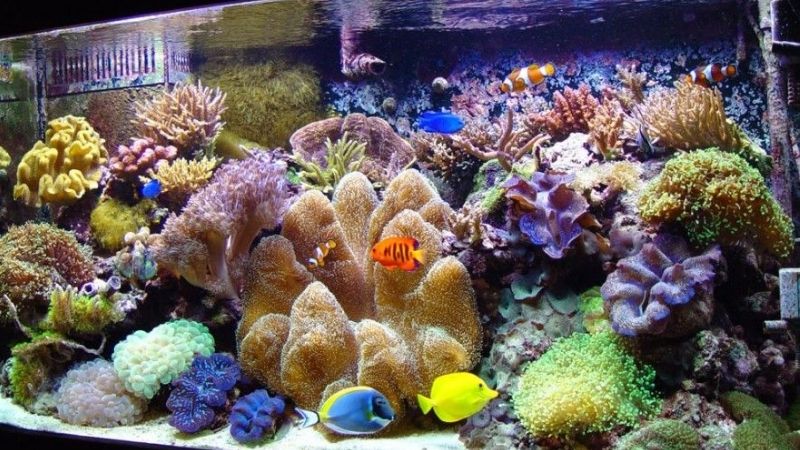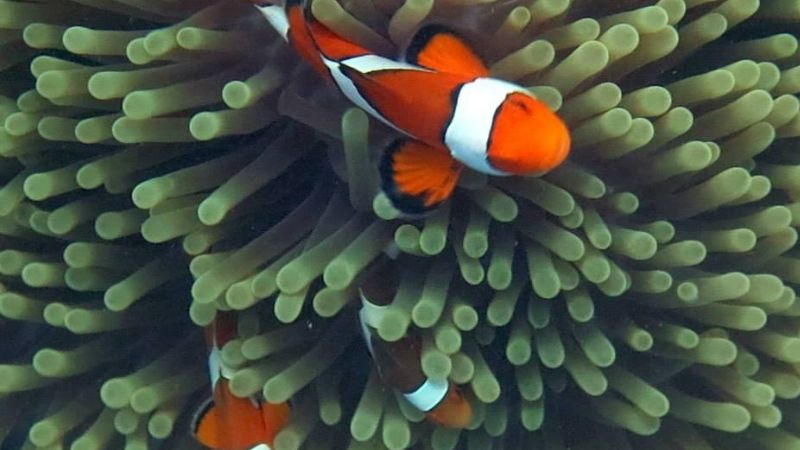Have you ever wondered, “How long do clownfish live ?”. Clownfish are a popular aquarium pet, and it’s natural for people to be curious about how much time they have left with their beloved fish. This article will answer that question by explaining the average lifespan of clownfish and providing tips on caring for them.
How Long Do Clownfish Live ? Average Lifespan Of A Clownfish
Clownfish can live up to 15 years in captivity. In some cases, they may even live more than 20 years. A clownfish’s lifespan mainly depends on the care it gets, its environment, and the food it eats.
How To Make Sure Your Clown Fish Live Long?
The lifespan of Clownfish is affected by many variables, including genetics and living situation. Stress or health issues can shorten a Clown fish’s life; however, giving them the following environmental factors should help to increase their lifespan.
How long do clownfish live in captivity ?
There are a variety of factors that will determine the lifespan of a clownfish, but in general, they can live around 4-6 years. With good care, an appropriate diet, and clean water, clownfish can live up to 20 years!
Average lifespan of a clownfish in the wild
If you are unfamiliar with how clownfish live in the wild, it is important to note they typically only live about 6-10 years, if that is lucky. The most common issues to these fish are predators and insufficient food. Something that tank-raised clownfish typically do not face.
Factors Affect Your Clownfish Life Expectancy
Most clownfish will have different lifespans. Some will die earlier while others live significantly longer. Sometimes, even when you do everything right it’s still not enough to save your fish. It’s ok – It’s the way nature works.
However, there are still things you can do to make your fish’s life better. Ways that will definitely prolong its life.
Diet
Feeding your Clownfish a healthy diet will improve their overall health and lead to an increase in life expectancy. Make sure that you feed your clowns well, and on a frequent basis.
We have a separate article on feeding clownfish. Feel free to check it out. Everything is covered in depth of this post How Often to Feed Clownfish
Genetics
Genetics plays a big role in the overall health of the fish, too. Today, there are many new designer varieties of saltwater fish entering aquariums.
I suspect some of these types of clownfish won’t live long compared to some natural types. However, most of these claims are just assumptions. The best thing to do before you buy a clownfish is checked that it’s from a reputable breeder who knows his stuff.
Environment
One of the most common reasons for a short life span in captivity is poor tank conditions. It’s also worth mentioning that inappropriate tank size can be an issue. Smaller tanks are often harder to maintain and typically offer poor living conditions for fish. You may not need a large tank: around 30 gallons is a good size to start.
One of the myths people have about clownfish is that they need to be kept with an anemone in order to survive. Contrary to what you might think, It survives just fine without anemone. Skipping the anemone means you get to avoid its challenging care and high lighting needs. However, having one available does make for a nice touch. If you’re able to provide anemones, the addition of these underwater plants makes for a beautiful set-up.
Common Diseases That Reduce Clownfish Lifespan
Even with complete care and hygiene, you cannot avoid fish diseases. They can be triggered by fellow fish, live food, or bacteria in the water. The chance of an outbreak increases if they are fighting among tank mates.
Qualified medical experts suggest that you should always be aware of the diseases and their symptoms. We discuss everything in this article.
Fin Rot: If a fish feels too stressed, the fin rot may be developed. The first thing you may notice is the reddening and fraying on the fins. In extreme cases, this infection can destroy the fins. You might also see some changes in behavior as well such as isolation, eating less, or becoming very inactive
If you see any of these symptoms, isolate the infected fish to a quarantine tank. Then try adding some antibacterial medication to prevent the spread of this disease. Performing frequent water changes and salt bath helps as well.
Related Post: Clownfish Fin Rot: Top 6 Important Things You Need To Know

White spots: Clownfish can be susceptible to fungal infections, the most common of which is marine ich or marine white spot. The disease usually starts with white spots on the gills, fins, and body. There are also symptoms like increased mucus, pale gills, cloudy eyes, and ragged fins.
Its appearance is similar to freshwater ich, but it occurs due to entirely different parasites. The treatment for saltwater ich includes raising the temperature of the water (to 86 degrees) and then adding more salt. If this doesn’t work, a copper dose will help: about 0.15-0.24 mg/liters should do the
One thing to keep in mind, Marine Ich is contagious and eggs can remain viable for weeks waiting for the perfect opportunity to settle on new hosts.
Hole-In-The-Head Disease: Though it’s not common, hole-in-the head or lateral line erosion is possible in both fresh and saltwater fish. The disease attacks the lateral line or the vibration sensing part of the fish. You will notice its affected area appearing depressed and colors in black, white, or brown
The Hexamitid parasite is the main cause of this disease, but water quality, diet, and environmental factors can contribute too. And as for treatment, consult with your vet because you cannot treat it yourself.
Swim Bladder Disorder: Sometimes, you will notice your fish is having difficulty swimming. It looks like they are losing balance and bobbing back and forth. This is a common sign of bladder disorder. The disease is very rare in clownfish, but it affects them and can make them prone to both stress and infections. Luckily, its treatment is quite easy.
You should raise the tank’s temperature, clean its water and bathe the fish in salt if there is swelling in the belly.
See more: Swim Bladder Disease Clownfish (3 Symptoms And Helpful Cure)
What Type Of Tank Setup Do Clown Fish Need?
Clownfish can live irrespective of tank setup as long as water parameters/atmospheric pressures are appropriate. However, for aesthetic purposes a reef or rock decorate is recommended.
It can be difficult to set up a new tank, especially if you’re not used to aquariums. First, give the space something for the fish to hide in and explore. Next is adding some decor so that it’s more appealing for them. But make sure not to overload their small habitat with too many things; clownfish like having plenty of space to swim.
FAQs
How old were the oldest clownfish?
The surveys in this article reveal that the oldest clownfish (Amphiprion ocellaris) were more than 20 years old. It seems as if they are not approaching the end of their natural lifespan since they can still reproduce regularly despite their great age.
Can clownfish live without an anemone?
Yes, clownfish can survive without anemones, especially in pet tanks where there is no risk of predators. Nevertheless, that is not the case in the wild. When a predator poses threats to its survival in its natural habitat, anemones are essential for it to avoid danger and lay eggs successfully.
How many clownfish can live together?
Clownfish should not be kept in tanks with more than one other clownfish, even if there is sufficient space. Due primarily to their nature as aggressive and territorial animals.
Conclusion
The elegant-looking clownfish are hardy and can sustain minor setbacks without getting sick or stressed. However, they are still delicate creatures that will need care. And the answer to how long do clownfish live is all related to the care you provide. If you treat them right, they will stay with you for a long time.

Annette M. Chaney is an experienced marine biologist with over 20 years of experience as an aquarist and fishkeeper. She started her first aquarium at a young age, filling it with frogs and goldfish obtained from the ten-cent pet store.
Annette grew up caring for and breeding African Cichlids, which led to a hobby in high school that doubled as a profitable means. Attending Reed College gave her time to solidify herself as an accomplished aquarium caretaker with an eye for sales. After that, from 2009 – 2013, she studied at Roger Williams University – one of the most prestigious universities for Aquaculture and Aquarium in USA. She is the founder of AquariumCircle since 2010.
